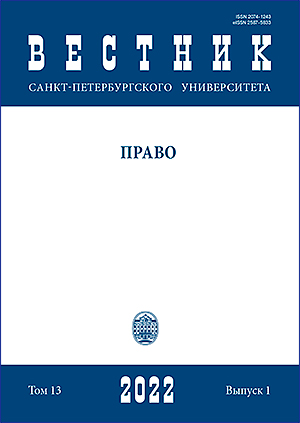The comparative analysis of the law of evidence in civil proceedings in France and Russia
DOI:
https://doi.org/10.21638/spbu14.2022.115Аннотация
The article deals with the problems of the legal nature and legislative consolidation of norms of evidentiary law in France and Russia. The author claims that it is more optimal to consolidate norms of proof and evidence in evidentiary law of Russia. At the same time, Russian theory of evidence needs radical reform. The legal approach to the concept of proof in legislation of Russia and France is differentiated. In French evidentiary law, the ranking of evidence is legally fixed, which cannot be recognized as dignity. However, legal norms regarding some means of proof are sufficiently developed. The means of proof, which are outdated as legislation and judicial practice, are still fixed. At the same time, the legal regulation of electronic evidence has been sufficiently developed, which can be recognized as an advantage of French evidentiary law. Russian evidentiary law does not provide for legal regulation of electronic evidence as an independent means of proof. The following areas of improvement of Russian evidentiary law are highlighted: improvement of the theory of proof, optimization and unification of the legal regulation of the rules of evidence, reception of effective means of regulation from the evidentiary law of foreign countries, and detailed legal regulation of individual means of proof.
Ключевые слова:
French civil proceedings, the Russian civil proceedings, Russian procedural legislation, French procedural legislation, the concept of reforming civil procedural legislation, evidentiary law, proof and evidence
Скачивания
Библиографические ссылки
Загрузки
Опубликован
Как цитировать
Выпуск
Раздел
Лицензия
Статьи журнала «Вестник Санкт-Петербургского университета. Право» находятся в открытом доступе и распространяются в соответствии с условиями Лицензионного Договора с Санкт-Петербургским государственным университетом, который бесплатно предоставляет авторам неограниченное распространение и самостоятельное архивирование.






